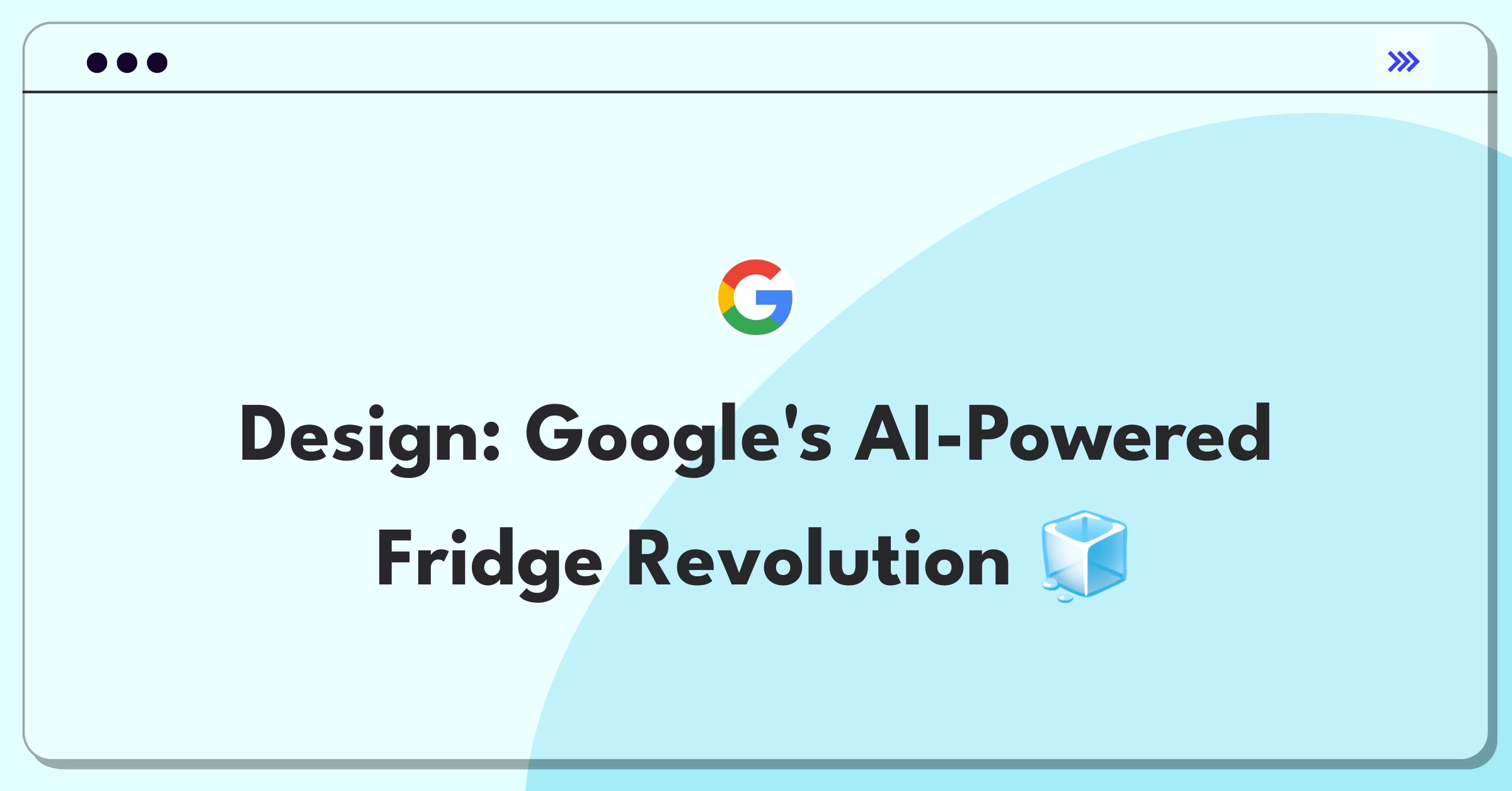Introduction
Designing a Google Refrigerator presents an exciting opportunity to blend cutting-edge technology with everyday appliances. We'll explore how Google's expertise in data, AI, and user experience can revolutionize food storage and kitchen management. Let's dive into the key aspects of this product design challenge.
Tip
Does this approach align with your expectations? I'm happy to adjust if needed.
Step 1
Clarifying Questions (3 minutes)
Why it matters: Defines the core technology focus Expected answer: Yes, leveraging Google's AI and data capabilities Impact on approach: Will emphasize AI-driven features and data analysis
Why it matters: Influences feature set and pricing strategy Expected answer: Initially premium, with plans to expand Impact on approach: Will balance cutting-edge features with scalability
Why it matters: Determines the extent of ecosystem integration Expected answer: Yes, strong integration is expected Impact on approach: Will focus on seamless connectivity with other Google products
Propose the Goal
Given Google's strengths in AI and data analysis, I believe our goal should be to create an intelligent refrigerator that optimizes food storage, reduces waste, and simplifies meal planning through predictive analytics and ecosystem integration. Does this align with your vision?
Define the Scope
For this design challenge, let's focus on the core smart features that differentiate a Google Refrigerator from traditional models. We'll assume we're designing for a premium market initially, with strong integration into the Google ecosystem.
Subscribe to access the full answer
Monthly Plan
The perfect plan for PMs who are in the final leg of their interview preparation
$66.00 /month
- Access to 8,000+ PM Questions
- 10 AI resume reviews credits
- Access to company guides
- Basic email support
- Access to community Q&A
Yearly Plan
The ultimate plan for aspiring PMs, SPMs and those preparing for big-tech
- Everything in monthly plan
- Priority queue for AI resume review
- Monthly/Weekly newsletters
- Access to premium features
- Priority response to requested question


.png)